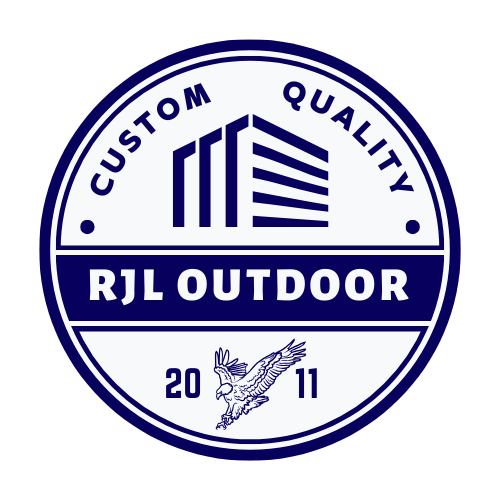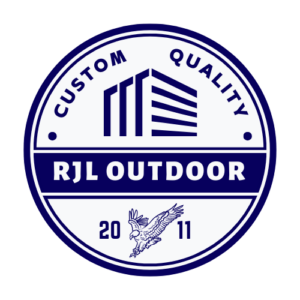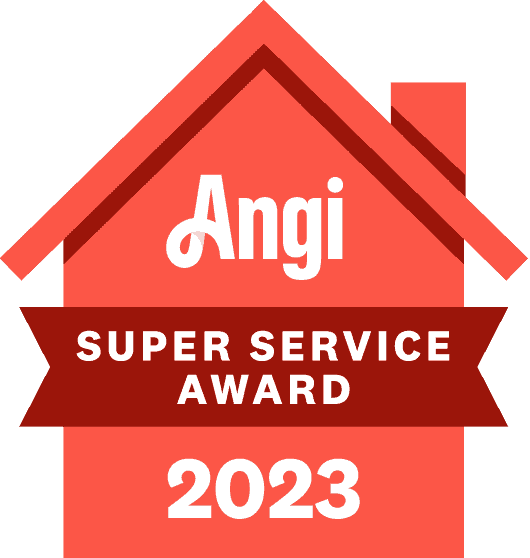Howdy!
When it comes to securing your business, you don’t want to cut corners. You need a fencing solution that’s as tough as your business goals. That’s where a top-tier commercial fencing contractor comes in. We’re talking about the pros who understand that a fence isn’t just a boundary; it’s a statement about your company’s commitment to security, professionalism, and aesthetics.
Choosing the Right Commercial Fencing Contractor: Your Business Depends On It
Finding the right commercial fencing contractor can feel like navigating a maze. With so many options out there, how do you separate the seasoned pros from the fly-by-night operations? Don’t sweat it, we’ve got your back. Here’s a breakdown of what to look for:
- Experience is King: You want a contractor with a proven track record. Look for years of experience in the industry, specifically with commercial projects.
- A Stellar Reputation: Word-of-mouth is gold. Check out online reviews and testimonials. See what other businesses are saying about their work.
- Licensed, Bonded, and Insured: This isn’t a place to gamble. Make sure your contractor has all the necessary credentials to protect you from liability.
- Quality Materials: A fence is only as strong as the materials used to build it. Insist on high-quality materials that are built to last.
- Competitive Pricing: You want the best value, not necessarily the cheapest price. Get multiple quotes and compare them carefully.
- Excellent Communication: Your contractor should be responsive, communicative, and transparent throughout the entire process.
Types of Commercial Fencing: Finding Your Perfect Match
No two businesses are the same, and neither are their fencing needs. Let’s explore some popular types of commercial fencing:
1. Chain Link Fencing: The Workhorse
- Durable and Low-Maintenance: Chain link is a classic for a reason. It’s incredibly tough, resistant to rust and corrosion, and requires minimal upkeep.
- Cost-Effective Security: If you need a reliable barrier without breaking the bank, chain link is a solid choice. It’s readily available and relatively affordable to install.
- Versatility in Applications: From securing industrial sites to enclosing schoolyards, chain link fencing is a versatile option for various commercial properties.
- Customization Options: You can enhance security with barbed wire tops, increase privacy with slats, or even add a touch of color with vinyl coatings.
2. Ornamental Iron Fencing: The Statement Maker
- Elegant and Sophisticated: Ornamental iron fencing adds instant curb appeal. It conveys a sense of prestige, elegance, and timelessness.
- Enhanced Security with Style: Don’t let the good looks fool you; ornamental iron fencing is incredibly strong and secure. Intricate designs act as a deterrent while enhancing the property’s aesthetics.
- Durable and Long-Lasting: With proper maintenance, ornamental iron fencing can last for decades, making it a wise investment.
- Customization to Impress: From intricate scrollwork to custom finials, ornamental iron offers endless design possibilities to complement any architectural style.
3. Aluminum Fencing: The Modern Minimalist
- Sleek and Contemporary: Aluminum fencing offers a clean, modern aesthetic that complements contemporary architecture beautifully.
- Lightweight yet Sturdy: Aluminum is surprisingly strong for its weight, making it easier to install and less likely to sag over time.
- Corrosion Resistance: Aluminum naturally forms a protective oxide layer that makes it highly resistant to rust and corrosion, even in harsh environments.
- Low Maintenance: A simple wash with soap and water is usually all it takes to keep your aluminum fence looking its best.
4. Vinyl Fencing: The Low-Maintenance Champion
- Effortless Upkeep: Vinyl fencing is the epitome of low maintenance. It never needs painting or staining and can be easily cleaned with a hose.
- Durability and Longevity: High-quality vinyl fencing is engineered to withstand the elements, resist fading, and maintain its structural integrity for years to come.
- Cost-Effective in the Long Run: While the initial investment might be higher than wood, vinyl’s longevity and minimal upkeep make it a cost-effective choice over time.
- Variety of Styles and Colors: Vinyl fencing comes in a wide array of styles, colors, and textures, allowing you to find the perfect match for your property’s aesthetic.
5. Steel Fencing: The Ultimate Protector
- Unmatched Strength and Security: Steel fencing is the gold standard for high-security applications. It’s incredibly difficult to climb over or breach.
- Durable and Long-Lasting: Steel is resistant to impact, vandalism, and harsh weather conditions, making it a long-term investment.
- Ideal for High-Risk Areas: Steel fencing is the go-to choice for government buildings, military bases, and other high-security facilities.
- Customization Options: Steel fencing can be galvanized, powder-coated, or painted to enhance its appearance and longevity.
Commercial Fencing: Beyond the Basics
Now that you have a grasp of the main players, let’s delve into some key considerations for your commercial fencing project:
1. Security First:
- Assess Your Needs: Identify potential security risks and determine the level of security your business requires.
- Consider Height and Design: Taller fences with anti-climb features provide a greater deterrent.
- Gates and Access Control: Secure gates with robust locks and access control systems are crucial for controlling entry points.
2. Zoning and Regulations: Don’t Get Caught Off Guard
- Local Ordinances: Check with your local municipality for regulations regarding fence height, materials, and placement.
- Property Lines: Make sure your fence is installed within your property boundaries to avoid disputes with neighbors.
- Permits and Approvals: Depending on your location and the scope of the project, you may need permits before starting construction.
3. Budget Wisely: Invest in Long-Term Value
- Get Detailed Quotes: Obtain comprehensive quotes from multiple contractors, outlining all materials, labor, and potential additional costs.
- Factor in Maintenance: Consider the long-term maintenance requirements of different fencing materials when making your decision.
- Don’t Sacrifice Quality for Price: While it’s tempting to go for the cheapest option, prioritize quality materials and workmanship to avoid costly repairs or replacements down the line.
4. Aesthetics Matter: Make a Statement
- Complement Your Architecture: Choose a fencing style that enhances your building’s architecture and overall aesthetic appeal.
- Landscaping Considerations: Integrate your fencing with landscaping elements for a cohesive and visually pleasing look.
- Color and Finish Options: Explore different color and finish options to create the desired visual impact.
5. The Installation Process: What to Expect
- Site Preparation: The contractor will clear the area, mark utility lines, and prepare the ground for installation.
- Setting Posts: Posts will be set in concrete footings to ensure stability and prevent shifting.
- Attaching Rails and Panels: Rails will be attached to the posts, followed by the installation of fence panels or fabric.
- Gates and Hardware: Gates will be hung, and all necessary hardware, such as latches, hinges, and locks, will be installed.
- Final Inspection: Once the installation is complete, the contractor should conduct a final inspection with you to ensure everything meets your expectations.
Commercial Fencing: Frequently Asked Questions
Q: How much does commercial fencing cost?
A: The cost of commercial fencing varies widely depending on factors like:
- Fence Material: Steel, aluminum, vinyl, chain link, and ornamental iron all have different price points.
- Fence Height: Taller fences require more materials and labor, increasing the overall cost.
- Gate Inclusion: Adding gates to your fence will increase the total cost, especially for larger or more elaborate gates.
- Linear Feet: The total length of the fence directly impacts the amount of material and labor required.
- Site Preparation: If significant site preparation is needed, such as clearing trees or grading uneven ground, it will add to the cost.
- Labor Rates: Labor costs can vary depending on your location and the complexity of the installation.
Q: How long does it take to install a commercial fence?
A: The installation timeline depends on the size and complexity of the project, as well as factors like:
- Fence Type: Some fence types, such as chain link, are generally quicker to install than others, like ornamental iron.
- Site Accessibility: If the installation site is easily accessible, it will speed up the process.
- Weather Conditions: Favorable weather conditions will allow for uninterrupted work, while inclement weather can cause delays.
- Crew Size: A larger installation crew can typically complete the project faster than a smaller one.
Q: What are the benefits of hiring a professional commercial fencing contractor?
A: Hiring seasoned professionals comes with a host of advantages:
- Expertise and Experience: Professionals possess the knowledge and skills to handle all aspects of your fencing project efficiently and effectively.
- Quality Workmanship: They adhere to industry best practices and use proper installation techniques to ensure a durable and long-lasting fence.
- Time Savings: Professionals work quickly and efficiently, saving you valuable time and allowing you to focus on your business operations.
- Safety: Contractors are trained in safe work practices and have the necessary equipment to handle heavy materials and potential hazards.
- Permits and Regulations: They are familiar with local building codes and regulations, ensuring your fence meets all requirements.
- Warranty and Insurance: Reputable contractors stand behind their work with warranties and carry liability insurance to protect you from potential risks.
Q: How do I maintain my commercial fence?
A: Proper maintenance extends the lifespan of your fence:
- Regular Cleaning: Remove dirt, debris, and mildew with a hose or pressure washer.
- Inspect for Damage: Check for signs of damage, such as rust, cracks, or loose components, and address them promptly.
- Touch-Up Paint or Coating: If you have a painted or coated fence, touch up any chips or scratches to prevent corrosion.
- Gate Maintenance: Lubricate gate hinges and locks periodically to ensure smooth operation.
Commercial Fencing: Protecting Your Assets, Enhancing Your Image
Investing in a high-quality commercial fence is an investment in the security, aesthetics, and overall value of your property. By understanding the different types of fencing available, carefully considering your specific needs, and partnering with a reputable contractor, you can create a secure and visually appealing perimeter that enhances your business operations for years to come. Remember, your fence is often the first impression clients and visitors have of your business. Make it a good one.
RJL: Choosing the right commercial fencing contractor and investing in a quality fence are smart business decisions. It’s about protecting your assets, enhancing your curb appeal, and giving you peace of mind.





